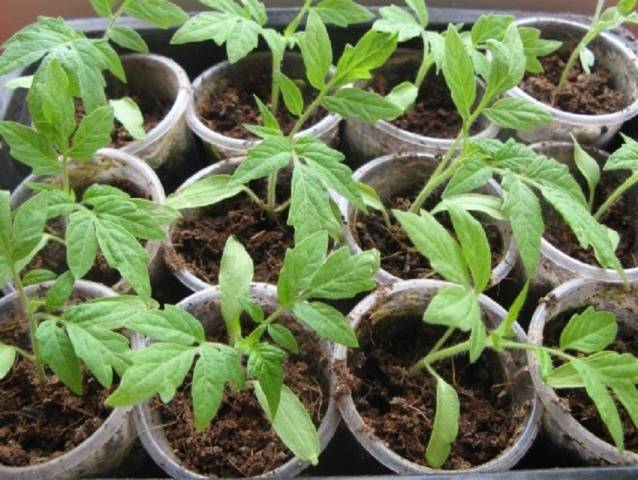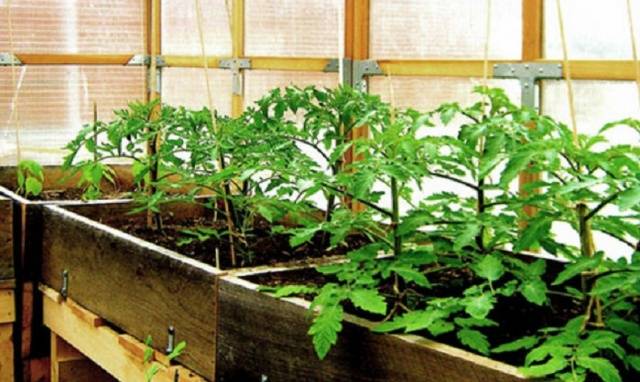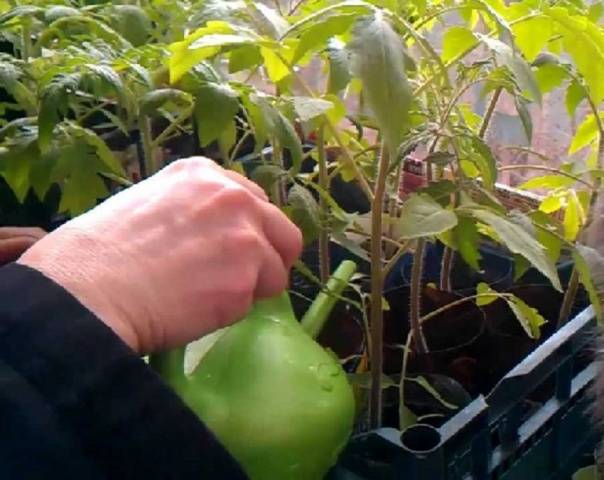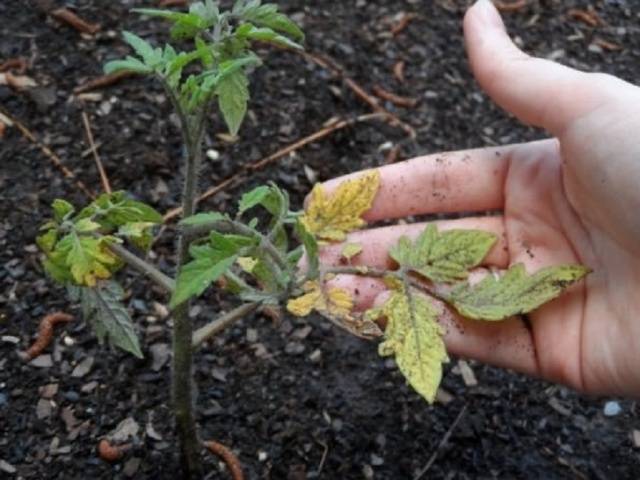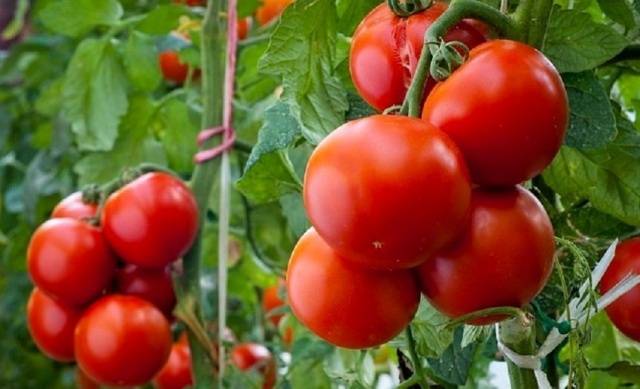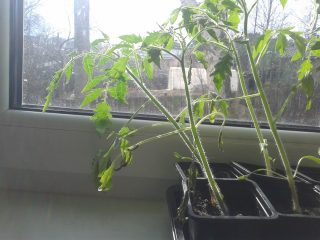Content
Growing tomato seedlings not without picks... Tall varieties have to be transplanted twice. Therefore, many gardeners ask questions about what should be the care of tomato seedlings after a pick.
Indeed, the quality of the future harvest depends on the competent and careful supervision of the seedlings of the dived seedlings. Consider the main stages of caring for tomatoes after picking.
What is the proper care of dived tomatoes
For dived tomato seedlings, it is necessary to create conditions for quick survival in a new place. This will help the tomatoes regain their vitality and start growing. Let's start with the transplant. As soon as the tomato seedlings are placed in a new container, remove the seedlings from direct sunlight, and ensure the air temperature does not exceed 16 ° C. To do this, we remove the boxes from the window sills, as well as away from the heating appliances. After three days it will be possible to return them to the windowsill.
The list of procedures for further care for dived tomatoes contains the following items:
- repeated diving (if necessary, and for tall tomatoes);
- timely watering;
- balanced feeding;
- optimal temperature regime;
- adequate lighting.
All this for their pets is provided by gardeners. You need to start caring for dived tomato seedlings from the first minutes after transplanting. Let's consider the main nuances.
Repeated dive
Some gardeners dive any tomatoes twice. They believe this will prevent the seedlings from pulling out. But it is better to use this technique only for tall varieties. The second transplant is carried out 3-4 weeks after the first and only if necessary. This will happen if the container size was chosen unsuccessfully for the first time, and it turned out to be small for the growth of seedlings. But this does not mean that the first time you need to transplant tomato seedlings in a large container. It is difficult to control watering in it, which leads to stagnation of water, a lack of air and a stop in the development of the root system. These seedlings stretch out and grow very weak.
Watering seedlings after picking
The water requirements are classic. It should be at room temperature in order to avoid the danger for the seedlings to get sick with the "black leg". Clean and clean at the same time. Seedlings, dived once, are watered weekly. Good watering criteria:
- all the soil in the container is moistened with water;
- no stagnation of moisture;
- the crust does not cover the top layer of the earth;
- takes into account the individual needs of the plant.
Moistening is necessary when the soil dries out; you cannot pour tomato seedlings.
Therefore, if the temperature regime allows you to reduce watering, then you need to do this so that the roots do not rot in the ground. In this case, the dived tomato seedlings will grow strong and healthy.
Lighting
An important factor for the proper development of dived tomato seedlings. Especially he needs to pay attention in the phase of 3 true leaves on seedlings, when the first inflorescences begin to form. Tomatoes are taught to light gradually. The containers are periodically rotated around the axis so that the stems do not tilt to one side. Lack of light leads to pulling tomato seedlings... This also occurs from the shading of the stem by the lower leaves.
On tomato seedlings, it is permissible to remove 3 pairs of lower leaves with an interval of 2 weeks. In case of insufficient natural light, tomato seedlings are illuminated.
Temperature regime
At the beginning of the growth of dived seedlings, the temperature is slightly reduced for 2-3 days from the recommended indicators. The rest of the time it is maintained in the intervals - from 16 ° C to 18 ° C during the day and about 15 ° C at night. Be sure to ventilate the room.
Hardening
A necessary item for dived tomatoes intended for planting in open ground. At first, they simply open the window for a while, then they accustom the seedlings to the outside temperature, taking the container out onto the balcony or into the yard. Before disembarking, you can leave containers in the open air overnight.
Feeding
Fertilizing tomato seedlings after picking is just as important as during the entire development of the culture. Usually, seedlings are fed twice during the period before planting for permanent residence. Nutrient formulations can be:
- purchase ready-made;
- cook it yourself.
Use different formulation options.
Fertilizing tomato seedlings raises many questions, so let's take a closer look at this important stage of care.
We feed the seedlings after diving without errors
During the period of seed germination, tomatoes have enough vitality and nutrients in the soil. And then the growth process takes up a huge amount of energy, which is necessary for the development of a full-fledged plant. Therefore, after diving, you need to feed tomato seedlings on time, without waiting for signs of a deficiency of mineral components. When feeding seedlings, watering is carried out secondarily.
How to feed tomato seedlings after picking? What is the interval between repeated procedures, which formulations are better suited to the dived seedlings? All these questions worry summer residents and require quality answers. There is no consensus, but there is a rational approach to crop cultivation.
The first feeding tomato seedlings after a pick, it is carried out after 14 days. The second with the same interval after the first. For those who prefer organic, poultry droppings or mullein are the best choices. Delicate tomato seedlings require careful application of nutrients. Therefore, organic matter is diluted with water and allowed to brew. Infusion requirements:
- warm water;
- ratio with organic matter 1: 2;
- the fermentation process must go to the end.
The readiness of the mixture can be determined by returning the original volume and settling the contents.
The fermented composition requires further breeding to feed the dived seedlings. It is made just before feeding. Infusion of bird droppings is diluted with water 1:12, and mullein 1: 7. Re-feeding is done with an infusion of a stronger concentration - litter 1:10 and mullein 1: 5. A great option is to add 10 g of superphosphate to the organic infusion per bucket of water.
After feeding the dived tomato seedlings, watering is immediately carried out. They pursue a dual purpose - they wash off fertilizer residues from the leaves and stems of the plant and help the liquid components to be absorbed faster.
The seedlings respond well to food with an infusion of wood ash (1 tablespoon per 2 liters of hot water).
Mineral fertilizer is applied in the following compositions:
- For the first time, 5 g of urea is mixed with 35 g of superphosphate and 15 g of potassium sulfate in a bucket of water.
- In the second, the concentration of the components in a bucket of water is increased - 10 g of urea, 60 g of superphosphate and 15 g of potassium sulfate.
A convenient option is Agricola. Breed according to the instructions and feed the tomato seedlings after diving.
The third feeding can be carried out with slow growth and soreness of tomato seedlings. Both mineral complex fertilizers and organic mixtures will work well here.It is beneficial to use all the same Agricola, combining it with spraying of seedlings with Fitosporin. This will be foliar treatment of dived tomato seedlings, which will give good results.
There are signs that signal a shortage of certain nutrients.
As soon as you notice yellowed or fallen leaves (at normal temperature and watering!) - nitrogen is required. The purple tint of the leaves and stems signals a lack of phosphorus. The leaves, pale and streaked, need iron. But all signs need to be carefully checked. After all, they can manifest themselves in other violations.
Keep a close eye on the seedlings, she herself will tell you what top dressing you need to do. Do not avoid folk methods, but do not neglect mineral fertilizers. Together, they will help grow strong and healthy tomatoes.
